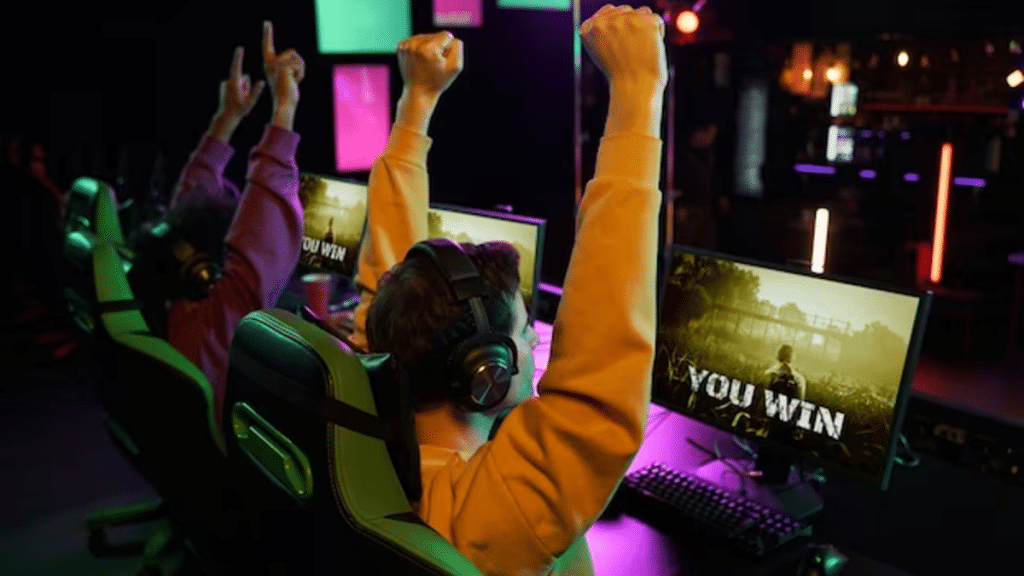In recent years, the integration of online game platforms into educational settings has sparked a revolution in how we perceive and engage with learning paradigms. Traditional methods of education often rely on rote memorization and passive learning, failing to fully engage students and foster critical thinking skills. However, online game platforms offer a dynamic and immersive learning environment that captivates learners of all ages. This article explores the transformative potential of online game platforms in education, examining their benefits, challenges, and implications for the future of learning.
The Rise of Online Game Platforms in Education
One of the most compelling aspects of online slot game platforms in education is their ability to engage and motivate learners. Unlike traditional classroom settings, where students may struggle to maintain focus and interest, game-based learning captivates attention through interactive challenges, rewards, and progression systems. By harnessing the intrinsic motivation inherent in gaming, educators can create a stimulating learning environment that encourages active participation and deeper engagement with course material.
1. Personalised Learning Experiences
Online game platforms have the potential to deliver personalized learning experiences tailored to individual student needs and preferences. Through adaptive algorithms and data analytics, these platforms can track student progress, identify areas of strength and weakness, and dynamically adjust content to optimize learning outcomes. By catering to diverse learning styles and paces, educators can ensure that each student receives a customized educational experience that maximizes their potential for growth and achievement.
2. Collaboration and Social Interaction
Incorporating multiplayer features and social elements, online game platforms foster collaboration and social interaction among students. By working together to solve problems, overcome challenges, and achieve shared goals, learners develop essential communication, teamwork, and leadership skills.
Leveraging the Power of Gamification in Education
Traditional forms of assessment, such as exams and quizzes, often fail to provide meaningful feedback or accurately measure student comprehension. Online game platforms offer a more interactive and immersive approach to assessment through gamified quizzes, simulations, and challenges. By integrating real-time feedback mechanisms and progress-tracking tools, educators can assess student performance more effectively, identify areas for improvement, and provide timely interventions to support learning goals.
1. Game Design Principles for Learning Design
Drawing inspiration from game design principles, educators can create learning experiences that are both engaging and educational. By incorporating elements such as clear goals, feedback loops, meaningful progression, and intrinsic rewards, instructional designers can design immersive learning environments that motivate and empower students to explore, experiment, and master new concepts. By adopting a gameful mindset, educators can transform passive learners into active participants who are eager to unlock the next level of knowledge and skill.
2. Integration with Curriculum Standards
While online game platforms offer exciting opportunities for innovation in education, their integration into existing curriculum standards poses certain challenges. Educators must ensure that game-based learning experiences align with academic objectives, curriculum standards, and assessment criteria. By mapping game content to specific learning outcomes and competencies, educators can maintain coherence and relevance within the educational framework while harnessing the transformative potential of online game platforms to enhance student engagement and learning outcomes.
Overcoming Challenges and Embracing Opportunities
Despite the potential benefits of online game platforms in education, access to technology and internet connectivity remains a significant barrier for many students, particularly those from underserved communities. Educators and policymakers must work collaboratively to bridge the digital divide and ensure equitable access to educational resources and opportunities for all learners, including innovative platforms like mahjong ways 2 that could contribute to a more inclusive learning experience.
1. Balancing Play and Pedagogy
While game-based learning holds promise for enhancing student engagement and motivation, educators must strike a balance between play and pedagogy to ensure that learning objectives remain central to the educational experience. Games should be thoughtfully designed to align with curricular goals and promote meaningful learning outcomes rather than mere entertainment. By incorporating reflective practices, formative assessments, and scaffolding techniques, educators can harness the power of online game platforms to foster deeper understanding, critical thinking, and metacognitive skills among students.
2. Promoting Digital Citizenship and Ethical Gaming
As students immerse themselves in online game environments, it is essential to promote digital citizenship and ethical gaming practices. Educators play a crucial role in guiding students to navigate digital spaces responsibly, respect intellectual property rights, and engage in constructive online discourse. By integrating lessons on digital literacy, online safety, and responsible gaming into the curriculum, educators can empower students to become ethical and responsible digital citizens who contribute positively to the online community.
End Note
In conclusion, online game platforms represent a paradigm shift in education, offering innovative ways to engage learners, personalize learning experiences, and foster collaboration and critical thinking skills. By leveraging the power of gamification, educators can create dynamic and immersive learning environments that inspire curiosity, creativity, and lifelong learning. However, to realize the full potential of game-based learning, educators must overcome challenges related to equity, access, and pedagogical integration while promoting digital citizenship and ethical gaming practices. Through collaborative efforts and strategic investments, we can harness the transformative potential of online game platforms to revolutionize education and empower learners to thrive in the digital age.

